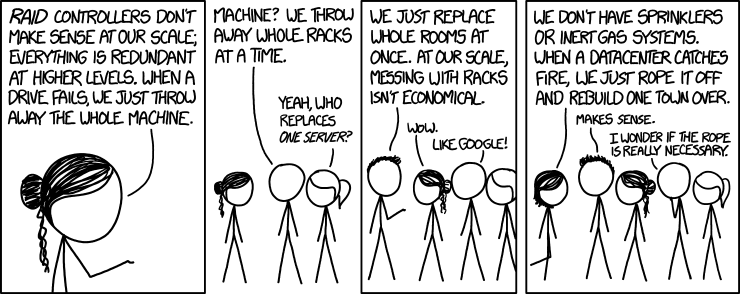The right way to do DevOps will be controversial in 2017.
And 2018. And 2020. And beyond.
The end of summer is when DevPro focuses on where the industry is headed. Part of the DevOps story is easy to tell: much of DevOps remains ill-defined and subjective. Provocateur Ted Dziuba labeled it a "scam" in 2011, many of his complaints remain valid now, and likely will be five years farther along. Commenters looking for simplistic answers will always deserve parody, and DevOps is ripe for the jabs of Randall Munroe about our eagerness to discard millions in assets, or mote-log confusion about how lightweight scalable asynchronous portable reliable computing truly is.

Grant for a moment that the industry is better about talking about wonderful DevOps improvements, than actually measuring them. Let's at least try to identify a few questions that deserve serious attention over the next year. Here are three of my candidates:
- How far left should testing and security shift in a particular organization at a particular time? Those are actually two different questions: the best focus for testing might, for instance, be earlier--more toward the development side--while security attends to operational matters. I emphasize: the immediate point is not to portray some DevOps ideal, but to figure out how to make the most progress in the next three months for a specific DevOps team with specific product commitments.
- Where in the organization is DevOps currently supported, and what will it take to extend that power base? I wrote last month about DevOps' potential for executive-level initiative; will that potential become real where you are?
- DevOps is all about business alignment. Does the organization know how simultaneously to nurture the distinct expertises of security, operations, quality control, and development, while also encouraging them to team up constructively?
We'll return to these questions in the coming months, with real-world examples of working code and action plans.





